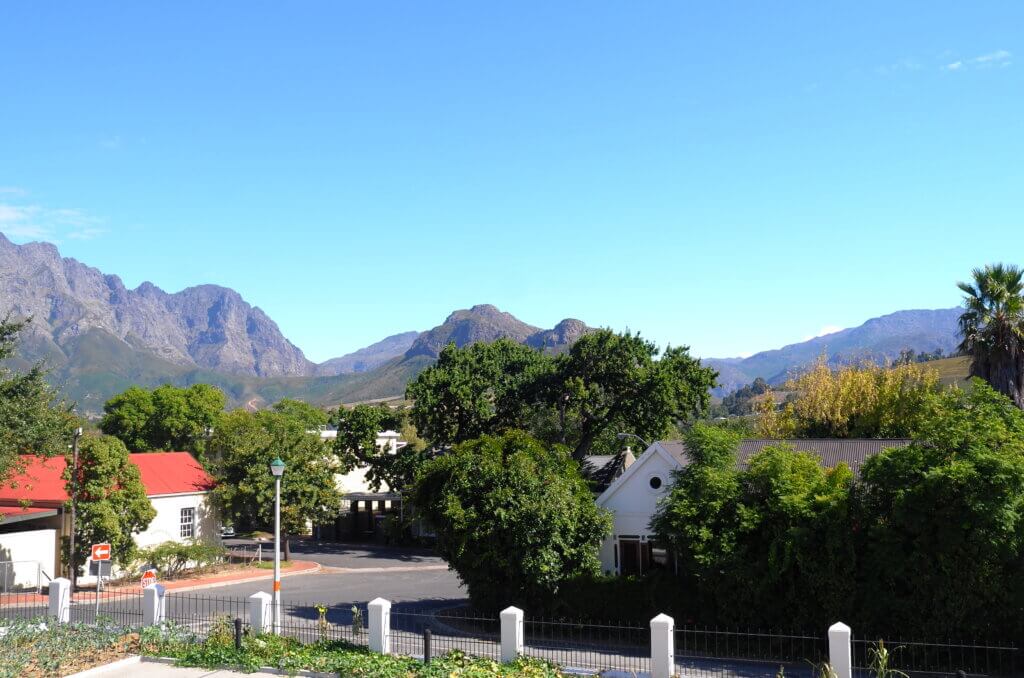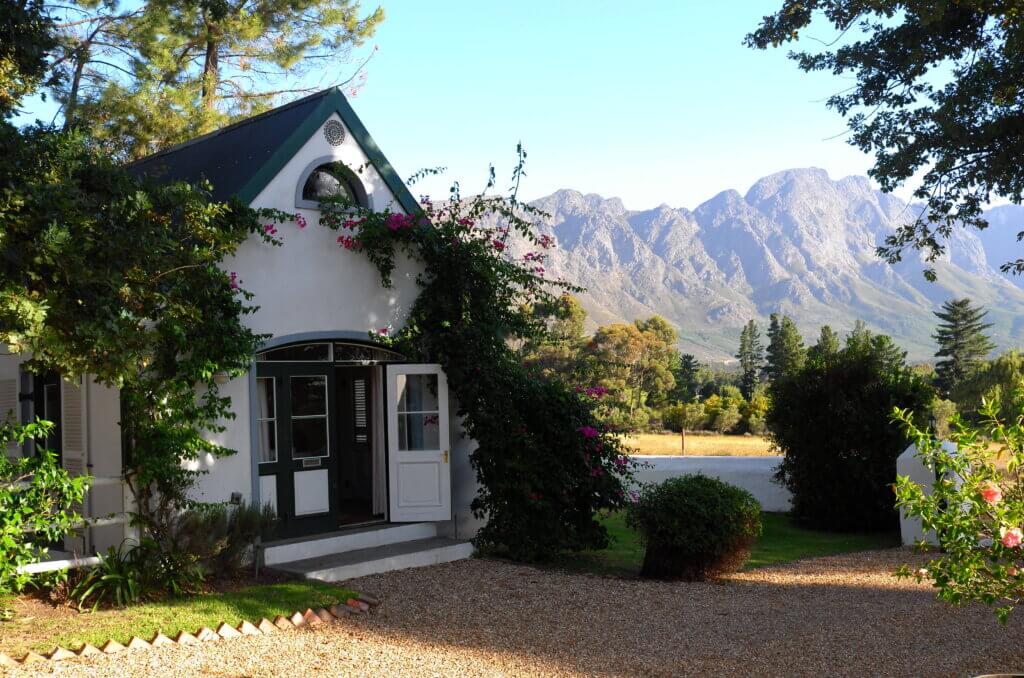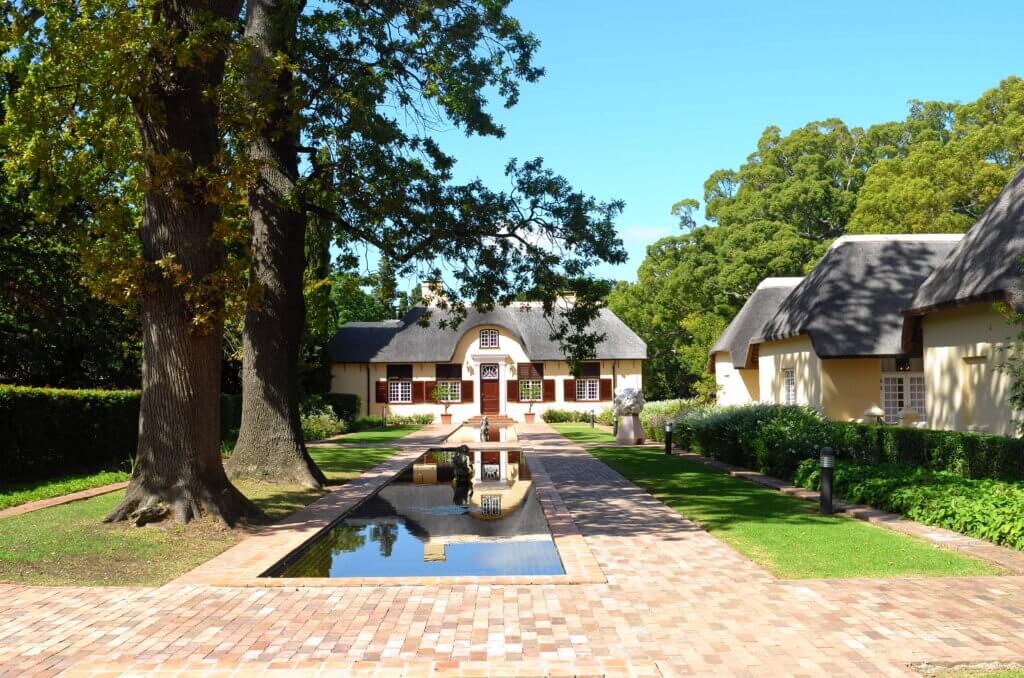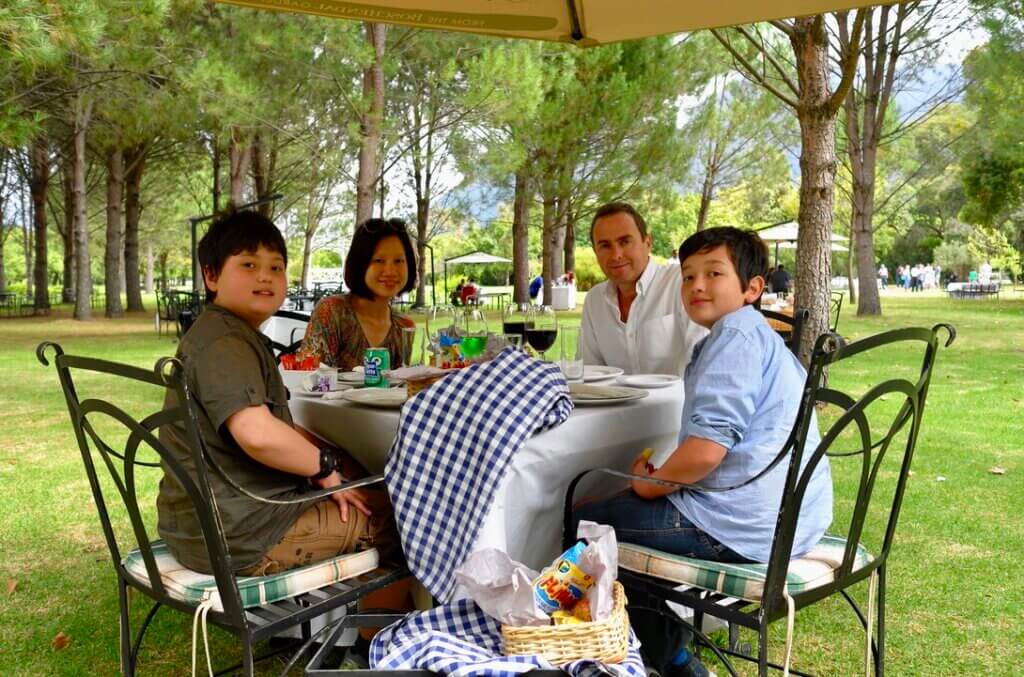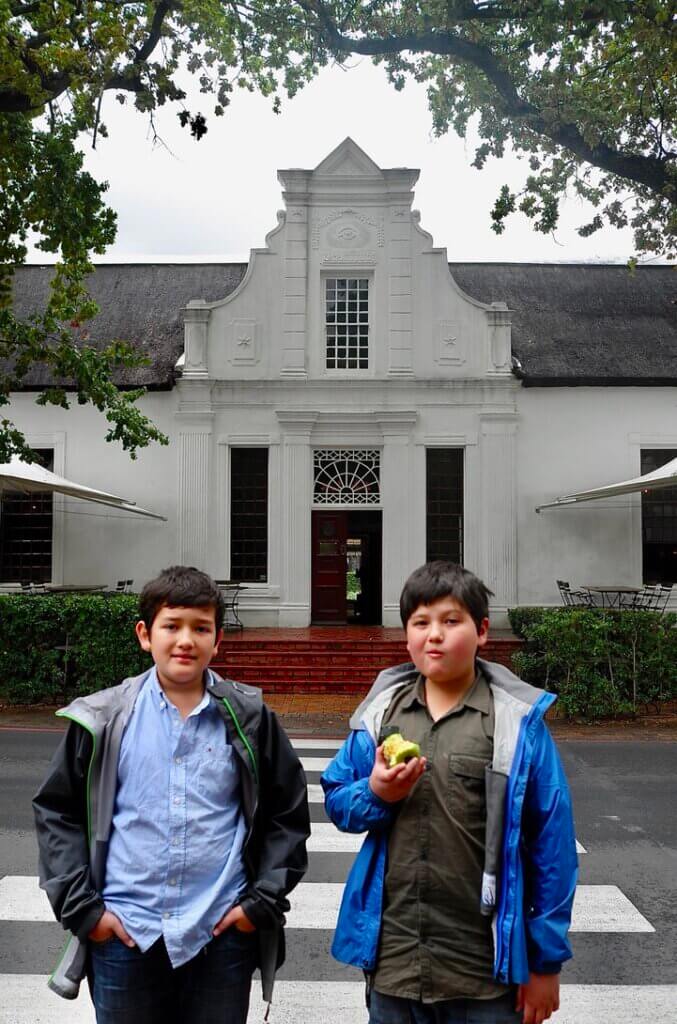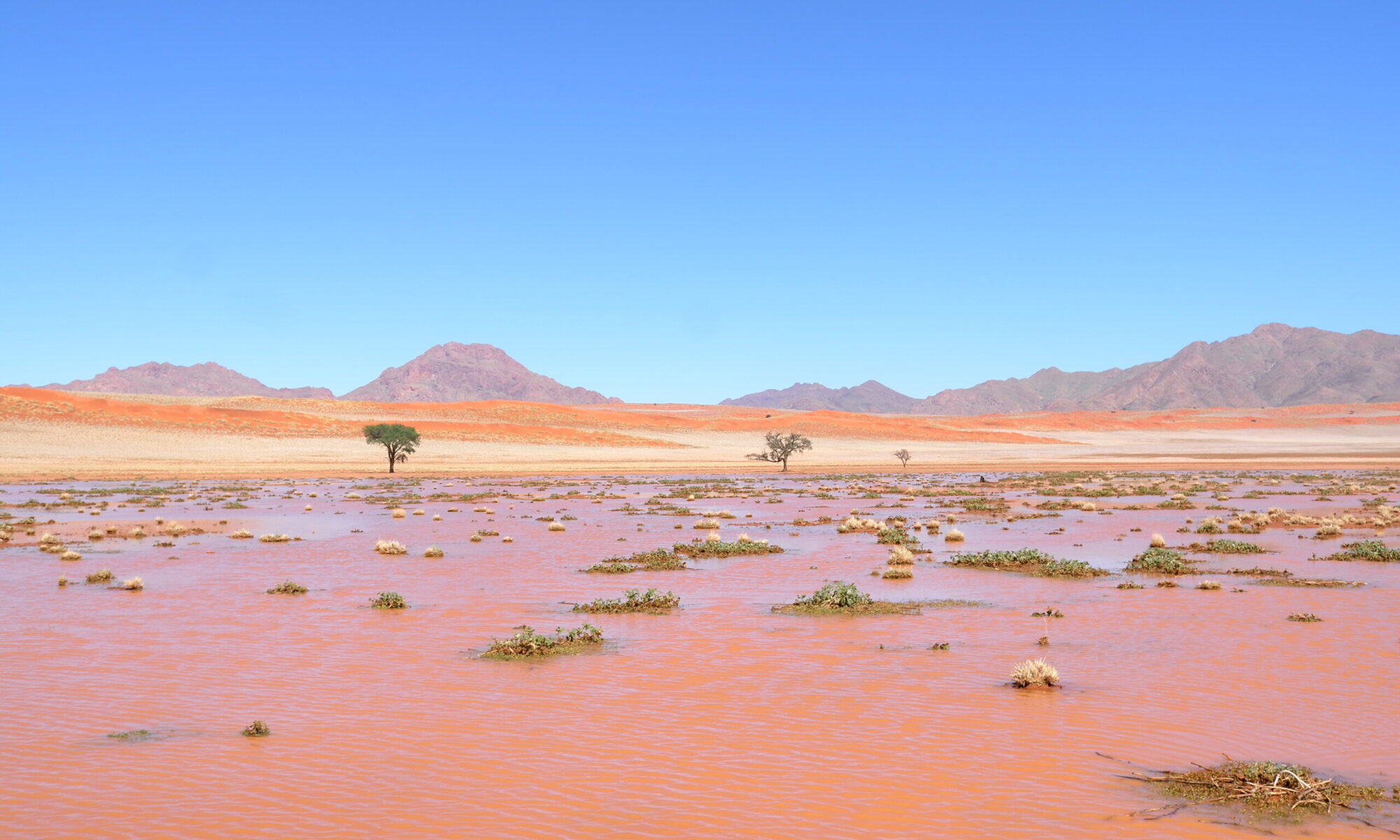With its dramatic mountains as backdrop, winding country lanes and quaint Dutch villages, the Western Cape province’s “wine country” has not changed much since the first Dutch and Huguenot settlers discovered it in the mid 1600’s.
Stellenbosch, the second oldest European city in South Africa was founded in 1679. While it is a major town today, its wide avenues lined by patrician Dutch and Victorian mansions give it a strange museum-like quality, making it feel grand and beautiful but quite lifeless. A town-sized mausoleum.
Franschhoek (the “French corner” in Afrikaans), was founded by French Huguenots fleeing persecution from the French catholic state and offered a free passage to the Cape by the Dutch East India company (V.O.C.). The first Huguenot families to settle in Franschhoek brought their wine making skills with them and planted the first vineyards. Today Franschhoek is a pretty village at the heart of the wine country and, as befits a village founded by French refugees, the food and wine “capital” of South Africa.
Our spirit of adventure having been somewhat dented by our travails in the less developed parts of Africa, we decide to spend an Epicurean week in Franschhoek doing nothing more exciting than wandering aimlessly from wine estate to wine estate, spending the better part of the day sitting on a terrace enjoying the views, the food and the wine.
